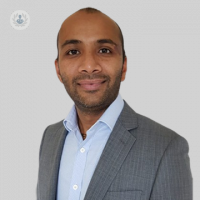Stress ECG: your questions answered
Written by:A stress ECG, or stress electrocardiogram is a tool often employed by doctors to evaluate the health of their patients’ hearts mostly to exclude significant narrowing blood supply of heart. Leading consultant cardiologist Dr Dushyant Maradia clears up any questions you may have about this procedure, explaining its purpose, process, and what patients can expect.

What is a stress ECG?
A stress ECG, also known as an exercise ECG is a diagnostic test that monitors the electrical activity of your heart while you engage in physical activity, like walking on a treadmill or cycling on a stationary bike. Its purpose is to evaluate your heart's performance under stress and identify issues such as reduced blood flow to the heart muscle.
Why is it done?
Your doctor may recommend a stress ECG if they suspect you have coronary artery disease or other heart-related issues. Symptoms that may prompt this test include chest pain or discomfort, shortness of breath, or an irregular heartbeat during physical exertion. By observing your heart's response to exercise, we can gather valuable information about its overall function and health.
Preparing for the test
Before the stress ECG, your doctor will provide specific instructions to prepare you for the procedure. This may include avoiding food or drinks containing caffeine, as well as certain medications that could interfere with the test results. Adhering to these instructions is crucial to guarantee the precision of the assessment.
The procedure
During the stress ECG, you'll be connected to an electrocardiogram machine with sticky electrodes placed on your chest, arms, and legs. These electrodes record the electrical signals produced by your heart. You'll then start exercising gradually, with the intensity increasing at set intervals. The goal is to elevate your heart rate to a target level while monitoring any changes in the ECG readings. Stress echocardiogram involves scanning heart before test to evaluate pumping function of heart at rest. Patient will have another heart scan when heart going very fast to see if all muscle are pumping as it should be. If they do that means they are received enough blood supply
What to expect
During exercise, you may encounter sensations like fatigue, breathlessness, or chest discomfort. It's vital to promptly inform the healthcare professionals overseeing the test of any discomfort you experience. If you encounter significant symptoms or if the ECG indicates concerning changes, the procedure will be halted.
Interpreting the results
Once the Stress ECG is complete, a doctor will analyse the recorded data to assess your heart's response to exercise. Normal results indicate that your heart is functioning well during physical activity. Abnormal findings may suggest underlying heart problems, prompting further evaluation and treatment.
If you require a stress ECG/stress echocardiogram and would like to book a consultation with Dr Maradia, simply visit his Top Doctors profile today.


